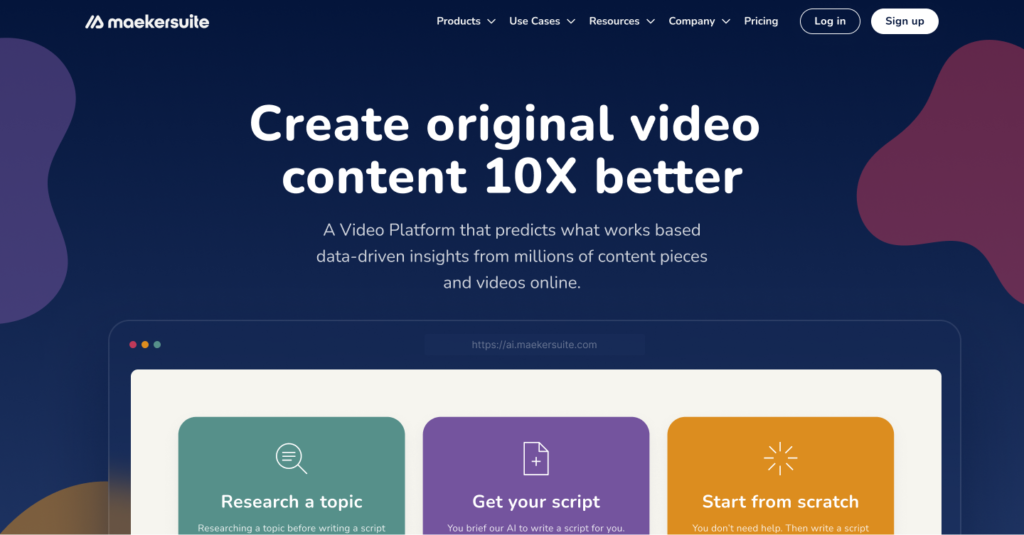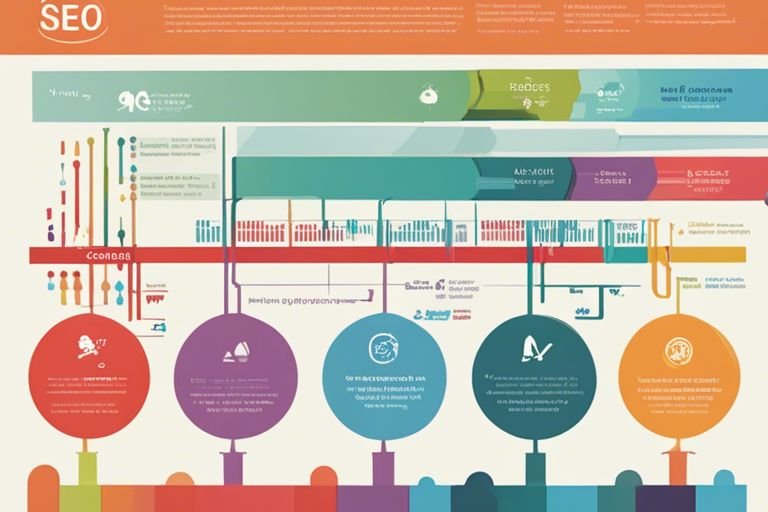Are you looking to maximize your online revenue through effective search engine optimization (SEO) strategies? In today’s digital age, having a strong online presence is essential for the success of any business. With the right SEO techniques, you can drive organic traffic to your website, increase your visibility in search engine results, and ultimately boost your online revenue significantly. In this blog post, we will discuss the most important steps you need to take to effectively use SEO to generate revenue for your business, and avoid some of the common pitfalls that can hinder your success.
First and foremost, you need to conduct thorough keyword research to identify the terms and phrases that your target audience is searching for. This will help you optimize your website content to align with these keywords, making it more likely to rank higher in search engine results. Additionally, you should focus on creating high-quality, valuable content that is relevant to your target audience, as this will not only improve your search engine rankings, but also attract more organic traffic to your website. By implementing these SEO strategies, you can effectively increase your online revenue and grow your business in the digital landscape.
Fundamental Principles of SEO
The success of your online business greatly depends on your ability to effectively use SEO to generate online revenue. Understanding the fundamental principles of SEO is crucial in achieving this goal. By mastering the basic concepts, you can improve your website’s visibility and attract more organic traffic, ultimately leading to increased revenue.
How Search Engines Work
Search engines such as Google, Bing, and Yahoo use complex algorithms to crawl and index webpages, determining their relevance and authority for specific search queries. When a user enters a search term, the search engine displays results based on a combination of relevance, authority, and user experience. This process involves analyzing on-page and off-page factors to determine the ranking of webpages.
On-Page vs. Off-Page SEO
On-page SEO refers to the optimization of individual webpages to improve their search engine rankings and attract organic traffic. This includes optimizing content, meta tags, and HTML source code, as well as improving website usability and user experience. On the other hand, off-page SEO focuses on external factors such as backlinks, social signals, and overall online presence to enhance a website’s authority and relevance in the eyes of search engines.
The Role of Content Quality and Relevance
High-quality, relevant content is the cornerstone of effective SEO. Content that is well-written, engaging, and provides value to the reader is more likely to attract organic traffic and earn backlinks. Search engines prioritize websites that offer valuable, informative content to users, so investing in creating and optimizing your content is crucial for SEO success. Your content should be optimized for relevant keywords and provide solutions to the user’s search intent in order to rank well in search engine results.
Keyword Research and Targeting
One of the most crucial aspects of effective SEO is keyword research and targeting. It involves identifying the terms and phrases that your target audience is searching for, and strategically incorporating them into your website’s content to improve search engine rankings and drive organic traffic to your site.
Identifying High-Value Keywords
When it comes to keyword research, it’s essential to identify the high-value keywords that are relevant to your business and have the potential to drive significant traffic to your website. These are the keywords with a high search volume and relatively low competition. By targeting these keywords, you can increase your chances of ranking higher in search engine results pages and attracting more qualified leads to your site.
It’s important to understand the search intent behind these high-value keywords. This means knowing what the user is looking for when they enter a particular search query. By understanding the intent, you can create content that directly addresses the needs and interests of your target audience, increasing the likelihood of converting them into customers.
Tools and Techniques for Effective Keyword Research
There are numerous tools and techniques available to help you conduct effective keyword research. One of the most popular tools is the Google Keyword Planner, which provides insights into search volume, competition, and trending keywords. Additionally, you can use tools like SEMrush, Moz, and Ahrefs to analyze your competitor’s keywords and identify new opportunities for your own SEO strategy.
Furthermore, techniques such as conducting customer surveys, analyzing social media trends, and monitoring industry forums can provide valuable insights into the language and terms your target audience uses when searching for products or services related to your business.
Incorporating Keywords into Your Content Strategy
Once you have identified the high-value keywords relevant to your business, the next step is to incorporate them into your content strategy. This involves seamlessly integrating these keywords into your website’s content, including landing pages, blog posts, product descriptions, and meta tags. However, it’s crucial to avoid keyword stuffing, which can negatively impact your site’s ranking and user experience.
Instead, focus on creating high-quality, valuable content that naturally incorporates your target keywords in a way that provides meaningful information and solutions to your audience. By doing so, you not only improve your SEO but also establish your authority and credibility in your industry.
On-Page Optimization Techniques
Keep in mind that on-page optimization is crucial for improving your website’s search engine rankings and attracting more organic traffic. By implementing the following techniques, you can enhance the user experience and make your site more appealing to search engines.
Optimizing Site Structure and Navigation
When it comes to on-page optimization, your website’s structure and navigation play a significant role in how search engines and users perceive your site. A well-organized and easily navigable site makes it easier for search engines to crawl and index your content. By organizing your site’s structure and implementing clear navigation, you create a positive user experience, increasing the likelihood of visitors staying engaged and exploring more of your content. Remember to create a hierarchy with your pages and include a clear navigation menu that allows users to easily find what they are looking for.
Creating SEO-Friendly Content
When creating content for your website, it’s important to keep SEO in mind. Your content should be relevant, informative, and tailored to your target audience. Utilize keywords strategically throughout your content to signal to search engines what your page is about. By providing valuable and engaging content, you can attract and retain visitors, ultimately improving your search engine rankings. Additionally, consider incorporating multimedia elements like images and videos to further enhance the user experience.
Leveraging Meta Tags and Descriptions
Meta tags and descriptions are vital components of on-page optimization. These elements provide search engines with information about your website’s content. By optimizing your meta tags and descriptions with relevant keywords and compelling descriptions, you can improve your click-through rate from search engine results pages. This, in turn, can lead to an increase in organic traffic to your site. Be sure to craft unique, descriptive meta tags and descriptions for each page on your site to effectively communicate your content to both search engines and users.
Mobile Optimization and Site Speed
With more users accessing the internet on mobile devices, mobile optimization is crucial for on-page optimization. Ensure that your website is responsive and mobile-friendly to provide a seamless experience for mobile users. Additionally, site speed is a critical factor that influences both user experience and search engine rankings. By optimizing your site’s loading speed, you can reduce bounce rates and improve user satisfaction. Implementing techniques such as image compression, minification of code, and leveraging browser caching can contribute to the overall performance of your website.
Off-Page Optimization and Link Building
Not only does off-page optimization and link building improve your website’s authority and credibility, but it also plays a crucial role in driving traffic to your site. By strategically building links from reputable websites, you can boost your search engine rankings and increase your online revenue.
The Significance of Backlinks
Backlinks are essential for improving your website’s visibility and credibility. When other reputable websites link to your content, search engines view it as a vote of confidence, indicating that your content is valuable and worth promoting. This can significantly impact your search engine rankings and drive more organic traffic to your site. Additionally, backlinks provide an opportunity for users to discover your website through external sources, further expanding your online reach and potential for revenue generation.
Strategies for Acquiring Quality Backlinks
When acquiring backlinks, focus on quality over quantity. Instead of pursuing a large number of low-quality links, prioritize building relationships with authoritative websites relevant to your industry. You can achieve this by creating high-quality, shareable content that naturally attracts backlinks. Additionally, guest blogging, influencer outreach, and participating in industry forums are effective strategies for acquiring quality backlinks. By consistently implementing these tactics, you can establish a strong backlink profile that contributes to your website’s online revenue generation.
Avoiding Common Link Building Mistakes
While link building is beneficial, it’s crucial to avoid common mistakes that can negatively impact your website’s reputation and rankings. Avoid engaging in black hat SEO tactics such as buying links or participating in link schemes, as this can result in severe penalties from search engines. Additionally, refrain from obtaining links from irrelevant or spammy websites, as this can harm your website’s credibility. Instead, focus on building organic, natural backlinks from reputable sources to maintain a positive online reputation and drive sustainable revenue growth.
Technical SEO and Website Performance
Now, let’s delve into the technical aspects of SEO and website performance. This is a crucial component of generating online revenue through SEO. Technical SEO focuses on the infrastructure of your website and how well search engine spiders can crawl and index your site. It also includes website performance, such as page loading speed and mobile-friendliness, which are vital factors in determining search engine rankings.
Understanding and Implementing Structured Data
Structured data, also known as schema markup, is a code that you can add to your website to help search engines provide more informative and relevant results for users. By incorporating structured data into your website, you can provide search engines with specific details about your content, such as products, reviews, events, and more. This can lead to rich snippets in search results, making your website more prominent and clickable. Implementing structured data can significantly improve your website’s visibility and click-through rates, ultimately driving more organic traffic and revenue.
The Importance of Secure and Accessible Websites
Your website’s security and accessibility are vital for both user experience and search engine rankings. Ensuring that your website is secure involves using HTTPS, implementing SSL certificates, and protecting user data. An accessible website means that it is easily navigable, with clear and concise content, and is optimized for mobile devices. Google and other search engines prioritize secure and accessible websites, so it’s essential to prioritize these aspects for better SEO performance and online revenue generation.
Site Audits and Continuous Improvement
To stay ahead in the SEO game and drive online revenue, you must regularly conduct site audits and work on continuous improvement. Regular site audits can help you identify technical issues, optimize website performance, and rectify any errors that could be hindering your SEO efforts. By continuously refining your website’s technical SEO aspects, you can ensure that it remains search engine friendly and drives organic traffic effectively, leading to increased online revenue. .
SEO Analytics and Performance Measurement
To effectively use SEO to generate online revenue, it is crucial to understand the performance of your SEO efforts. This is where SEO analytics and performance measurement come into play. By analyzing data and metrics, you can gain valuable insights into how your website is performing in search engine results and identify areas for improvement.
Setting Up and Using SEO Metrics
First, you need to set up and track the right SEO metrics to measure the effectiveness of your SEO strategy. This includes monitoring key performance indicators such as organic traffic, keyword rankings, click-through rates, and conversion rates. By using tools like Google Analytics and Search Console, you can track these metrics and identify trends over time. It is essential to regularly review these metrics to determine the impact of your SEO efforts and make informed decisions.
Interpreting Data to Inform SEO Strategy
Once you have collected the relevant data, you need to interpret it to inform your SEO strategy. Look for patterns and correlations in the data to identify what is working well and what needs improvement. For example, if you notice a decline in organic traffic for certain keywords, you can take action to optimize your content and improve your rankings. By understanding the data, you can make data-driven decisions to optimize your website’s performance in search engine results.
Adjusting Tactics Based on Analytic Insights
Finally, it is important to adjust your SEO tactics based on the insights gained from analytics. If you notice that certain strategies are not delivering the expected results, it may be time to pivot and try a different approach. Conversely, if you identify areas of strength, you can double down on those tactics to maximize their impact. Regularly monitoring and adjusting your SEO tactics based on analytical insights is crucial for continuously improving your website’s visibility and driving online revenue.

Advanced SEO Strategies and Trends
For advanced SEO strategies, you need to stay updated with the latest trends and developments in the field to maintain a competitive edge. Here are some advanced strategies and trends to keep in mind:
- Voice search optimization: With the increasing prevalence of voice search and AI-powered virtual assistants, it’s crucial to optimize your content for voice search queries. This includes using natural language and long-tail keywords that reflect how people speak.
- Featured snippets and structured data: Leveraging structured data and optimizing your content for featured snippets can improve your visibility in search results and increase your organic traffic.
- Mobile-first indexing: Google now prioritizes mobile-friendly websites for indexing and ranking. Ensuring that your website is responsive and provides a seamless user experience on mobile devices is essential for SEO success.
- User experience and page speed: Google considers user experience and page speed as important ranking factors. Optimizing your website for speed, improving navigation, and delivering high-quality content can positively impact your search rankings.
The Impact of Voice Search and AI on SEO
The rise of voice search and AI technologies has significantly altered the way people interact with search engines. As a result, optimizing your content for voice search queries is becoming increasingly important. Voice search often yields more conversational and long-tail keyword queries, so adapting your SEO strategy to accommodate these changes can help improve your visibility in search results and drive more organic traffic to your website.
Utilizing Local SEO for Geographically Targeted Traffic
Local SEO is essential for businesses targeting geographically specific audiences. By optimizing your website and content for local search, you can enhance your visibility in local search results and attract potential customers in your area. This includes creating and optimizing Google My Business listings, localizing content, and obtaining quality local backlinks to improve your local search rankings.
Preparing for Future SEO Developments
Staying ahead of the curve in SEO requires a proactive approach to anticipate and prepare for future developments. Keeping an eye on emerging trends, algorithm updates, and technological advancements can help you adapt your SEO strategy accordingly. By being prepared for future SEO developments, you can position yourself for sustained success in the rapidly evolving digital landscape.
Consolidating Gained Knowledge and Skills
As you delve deeper into advanced SEO strategies, it’s crucial to consolidate the knowledge and skills you’ve acquired to build a strong foundation for your SEO efforts. This involves continuously refining your expertise, staying updated with best practices, and implementing proven strategies to achieve tangible results. Consistently applying your gained knowledge and skills is essential for maintaining and improving your website’s search visibility.
Continuous Learning and Adaptation in SEO Practices
In the dynamic world of SEO, continuous learning and adaptation are key to staying ahead of the competition and maintaining a prominent online presence. Embracing a growth mindset and being open to new ideas, strategies, and algorithm changes can empower you to refine your SEO practices and effectively navigate the evolving digital landscape. By consistently learning and adapting, you can position yourself for sustainable success in the ever-changing realm of SEO.








